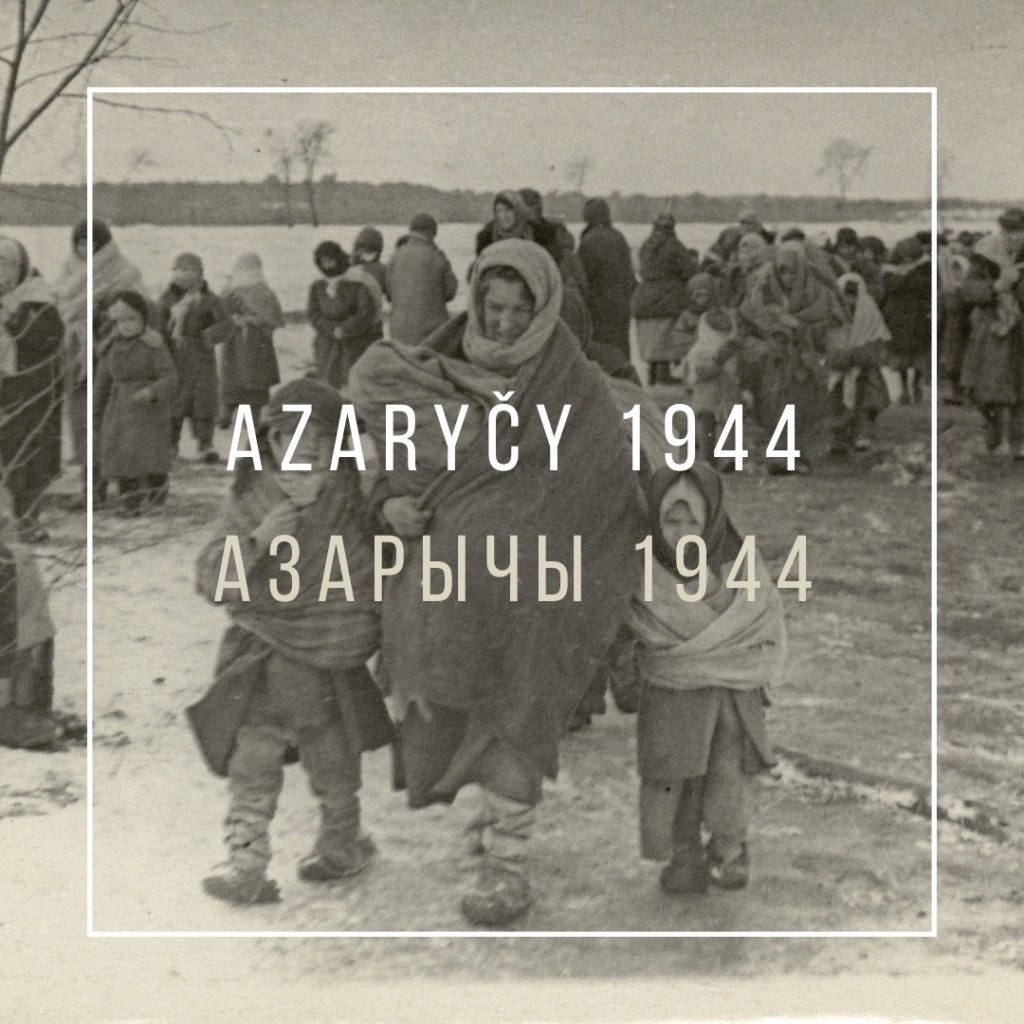Arkadii Shkuran, born on July 25, 1934, in Paraslišča, experienced the German attack as a seven-year-old child. His father, grandfather and uncle were arrested in August 1942 as partisan helpers and got executed later. In March 1944, the Wehrmacht marched to Azaryčy, where Shkuran and his sisters survived under the protection of their mother. In an 2018 interview, he gives a horroring account of the deportations:
«Самая страшная картина была, когда у женщин отбирали детей. Стояли крытые машины. Отбирая детей, они прямо туда в машину бросали, там кто-то больной взрослый был. Крик, плач. Никаких разговоров. […] Когда мы подошли к концлагерю Озаричи, там уже у входа в лагерь, с левой стороны, где машины останавливались, была целая куча трупов, в том числе детских».1 (Russian original)
“The most horrific scene was when they took the children away from the women. There were trucks with tarpaulins. They tore the children away and threw them onto the truck, a sick adult was already inside. You could hear screaming and crying, no talking. […] As we approached the Azaryčy concentration camp, we saw a pile of corpses, including children, to the left of the entrance where the wagons stopped.” (Translation of the Russian original)

